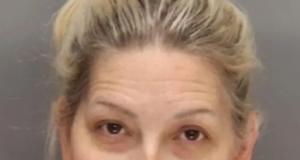The U.S. Supreme Court's nine justices met behind closed doors on Monday ahead of the Oct. 5 beginning of their new term to consider cases to add to a calendar that already includes significant cases on affirmative action and labor unions.
In an important case the justices may consider, the U.S. government is seeking to overturn an appeals court decision that threw out two major insider trading convictions secured by federal prosecutors.
During their private meeting, the justices reviewed hundreds of cases that piled up over their summer recess. The court is expected to announce later in the week which cases it will hear during the term that begins on the first Monday in October and ends in June.
Later this year, the justices are due to decide whether to hear a major case involving Republican-backed restrictions on abortion access under Texas law. The court has not decided an abortion case since 2007.
Before the court recessed for the summer, it had already picked several high-profile cases for the new term. They include a challenge to racial preferences in higher education admissions and a bid to prevent public sector unions from collecting fees from non-members.
In the insider trading case, Solicitor General Donald Verrilli has asked the high court to throw out a December ruling by the 2nd U.S. Circuit Court of Appeals in New York that reversed the convictions of hedge fund managers Todd Newman and Anthony Chiasson.
The ruling marked a major setback for an insider trading crackdown underway since 2009 by Manhattan U.S. Attorney Preet Bharara, whose office brought charges against 96 people.
Another case up for discussion is an appeal by Iran's central bank seeking to prevent nearly $2 billion from being transferred to victims of the 1983 bombings of a U.S. Marine Corps barracks in Beirut.
The court will also consider a challenge to Major League Baseball's longstanding exemption from antitrust laws.
When the justices take to the bench next Monday for the term's first oral arguments, it will mark their first time together publicly since last term's acrimonious end in June.
The court ruled 5-4 on the term's last day to uphold Oklahoma's lethal injection procedure even as two justices, Stephen Breyer and Ruth Bader Ginsburg, questioned the death penalty's constitutionality.
That came just days after the court's liberals forged majorities in major rulings legalizing same-sex marriage nationwide and rejecting a conservative challenge to the Obamacare healthcare law.




